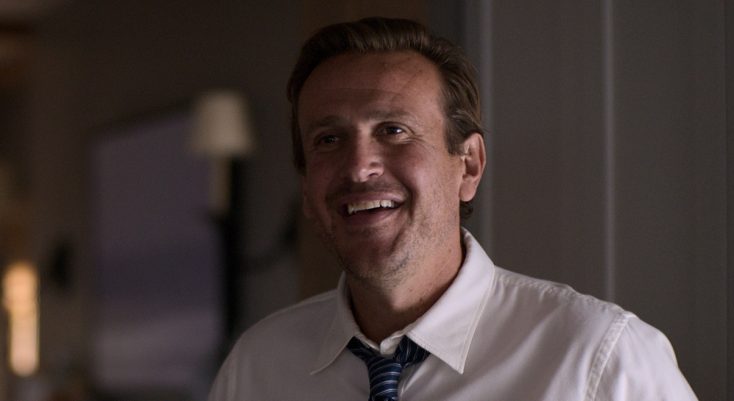By JUDY SLOANE
Front Row Features
PASADENA-“Shrinking” is a ten-episode series starring Jason Segel (“How I Met Your Mother,” “Forgetting Sarah Marshall”) as James Laird, a grieving therapist who starts to ignore his training and change the rules by telling his clients exactly what he thinks. Harrison Ford portrays Dr. Paul Rhoades, his boss and mentor.
The series begins streaming on Apple TV+ on January 27, 2023. Co-creator and executive producer Bill Lawrence joined co-creator and star Jason Segel at the Langham Hotel in Pasadena to talk with the TV Critics Association about their new dramady.
Q: Can you talk about the tone of the series? There’s a bit of sad, but it’s mostly funny and it’s a good balance.
Bill Lawrence: We wanted to write a show about grief because right now the world’s a little bit of a dumpster fire and you can’t meet anybody that isn’t at least two or three degrees separated from some sad shit going on in their life. My family approaches that with humor and comedy. We needed to get actors, actresses and writers that could make that stuff authentic so that people can veer from moments of big emotional drama into hopefully moments that are silly and fun.
Jason Segel: Rock bottom is an interesting thing because it seems like it’s a sad place, but it’s actually very hopeful because there’s no place to go but up. And then watching people scramble in the dark to try to pull themselves out of a hole I think is an inherently funny thing. Grown-ups desperate [are] really funny.
Q: How did you get Harrison Ford involved with the show?
Lawrence: Harrison’s my neighbor and so I knew him a little bit. I just remember asking him to read the script. And he read it, he’s like, “I like it.” I’m like, “It’s a show with Jason Segel. It’s going to be great.” And he goes, “Who’s Jason Segel?” And I said, “I’ll send you a couple movies of his.” And I sent him one and then he responded to Jason. And Jason you can tell —
Segel: No, no, you tell it. I’m not saying it.
Lawrence: All right, I’ll be careful. So basically he really loved Jason’s work and thought he was a great comedic actor and writer. Jason does full-frontal nudity in “Sarah Marshall,” and he sent Jason a text, which I believe is on your wall?
Segel: Yeah.
Lawrence: I’m not going to say it, but it says basically, “Nice nude body” from Harrison.
Segel: It doesn’t say “nude body.” (everyone laughs.)
Q: Did Harrison Ford text the word “penis,” “dick,” “package,” what did he say?
Segel: It was penis.
Q: How much are you like your character in this?
Segel: My view of acting is there are a lot of different styles. There’s the surrogate style where, for the next so many hours, I am you. And so I think that the way I approach a character is to try to find all the ways we’re similar and really focus on that.
Q: Have you gone through therapy yourself?
Segel: Yeah, I like therapy a lot. I had an ex-girlfriend who kept saying, “You should go to therapy.” And all I heard in my head was she was criticizing me. And then I went to therapy and I was like, oh, she loved me. She just wants me to be happy. And I think one of the cool things about the show is it explores how therapists can really help you get out of a rut.
Q: You give the impression of not being an actor who is self-conscious, like being nude in a film, but other things in general. You seem to be prepared to humiliate yourself if that’s what the role calls for.
Segel: Yeah. Well, I’m really lucky that I don’t have a strong sense of pride or shame. But I think life is vulnerable. You’re going through [life] having no idea what the point is, and bumping into walls left and right. I think the best I was able to express vulnerability was literally in “Forgetting Sarah Marshall,” full-frontal nudity.
There are moments in this show that are the same level of vulnerability but a more mature version, which is emotional vulnerability. What does it look like if someone is really grieving something that they’re never going to get back? It’s the same impulse of let’s get really honest about what life actually feels like when nobody’s looking.






